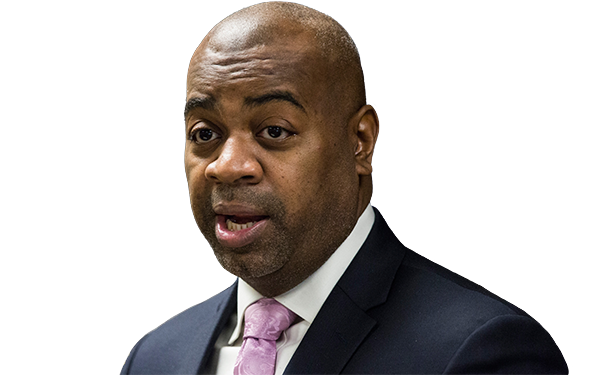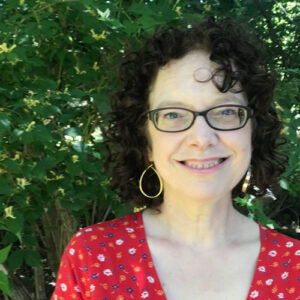Analysis: What Newark’s School Board Election Says About the Rising Influence of City’s Charter Parents

Updated May 13
New Jersey may be the Garden State, but don’t think you’ll find any country bumpkins in Newark, the state’s largest city with a school district that enrolls 44,000 children. Every Newarkian knows that mayors, city councilmen, and ward operators control municipal elections, including the three seats up this year for the nine-member School Advisory Board (SAB). Consequently, voter-turnout rates on school board candidate election days typically hover at a sparse 7 percent; residents know it’s not their vote that truly matters.
But the April 19th school board election three weeks ago was different because “an army of charter parents” found their voice — and started speaking as one.
One reason for this increased interest in school board membership (despite a dearth of media coverage beyond the Star-Ledger) is that, after 21 years of state control of Newark Public Schools, board members soon will hand in their rubber stamps and assume full governance, which means expanded control over policies and budgets. (Officials have predicted that local control could be returned as soon as next year)
The other reason is rooted in the empowerment of a growing number of charter school parents who now appear ready to appropriate authority from the power-brokers and elect pro-choice candidates to oversee their city’s historically dysfunctional school system.
"I think [this election] was really a coming out party for the collective group, for the charter community to say ‘We're here,” Lavar Young, Newark City Director for the Black Alliance for Educational Options, told NJ.com. “‘We're not really going anywhere — and we want a piece of the pie.’"
Last year 183 pro-choice parents voted in the school board election. This year over 3,000 did. And the biggest beneficiary of this turnout was Kim Gaddy, the pro-choice candidate. Sounds less like a coming out party and more like a revolution.
(More from Newark: Can new schools chief Chris Cerf bring political peace?)
In his foreward to a 2016 Newark Charter School Fund report, former Newark Mayor and U.S. Senator Cory Booker pointed to the escalating boldness of the city’s parents to “risk, innovate, and reimagine” Newark’s public education system, determined to free their children from “the shackles of ignorance or mediocrity.”’
To fully appreciate the importance of this turning point, you first must know the history of Newark Public Schools, which are second perhaps only to Camden in the chronicles of catastrophic failures of New Jersey’s traditional school system. In 1927 two professors reported to district authorities that “there is no community in our country, or perhaps in any other country, that has a more complex school problem to solve than has the City of Newark.” Two generations later in 1995 a state report described a school district where children “are subjected to substandard facilities and poorly equipped classrooms and libraries” while ”the board of education of Newark” enjoys “the finer things in life, such as travel to Honolulu, St. Thomas and San Francisco, dinners at fine restaurants, new cars and flowers.” Robert Curvin, civil rights leader and author of the 2014 book “Inside Newark,” writes that a century of school district corruption and patronage “shortchanges the overwhelming majority of children who enter its classrooms.”
In 1995, four years after the State Department of Education took control of Newark Public Schools, the New Jersey State Legislature passed a charter school authorization law. Two years later the first charter school opened in Newark. Currently the non-traditional public school sector enrolls about 33% of Newark public schoolchildren and the growth is startling: Public Impact reports that since 2004 charter school enrollment has increased by 362%, proportionately the third highest rate of growth in the country.
In 2013 40% of parents who live in Newark’s South Ward, the poorest section of town, entered their children in charter school lotteries. The following year when then-Superintendent Cami Anderson inaugurated the district’s first universal enrollment system that allows families to prioritize school preferences among all public schools, half of all K-8 parents listed charters as their first choice.
(74 Interview: Cami Anderson talks about what ‘The Prize’ left out about Newark)
By 2018 40% of all Newark schoolchildren are projected to attend charter schools, as parents exercise their right to school choice within the constraints of available seats.
In fact, 10,000 schoolchildren are currently on waiting lists, despite recent expansions of the city’s high-achieving KIPP and Uncommon charter networks.
In other words: Newark charter school families typically vote with their feet, not with their ballots. Which begs the question: What finally got them to the voting booths on April 19th?
In 2014, City Councilman Ras Baraka —a Newark politico who in his spare time was principal of Newark’s Central High School — beat Shavar Jeffries (now president of Democrats for Education Reform) in the mayoral race by constructing his campaign as a referendum on Cami Anderson and garnering strong support from the Newark Teachers Union as well as other allied groups. One of those groups, the union-backed “Working Families NJ” celebrated: “Baraka win a big blow to corporate education reform!”
Over the next year, Baraka continued his assault on charter schools, even as various research piled up demonstrating the advantages of charter enrollment, particularly for economically-disadvantaged children of color. Stanford’s CREDO reported that “on average, students in New Jersey charter schools learned significantly more than their virtual counterparts in reading and mathematics.” Research conducted by the Center for Reinventing Public Education shows that among 50 cities studied, only 8% of public schools “beat the odds” but in Newark that percentage soared to 40%, solely due to the educational advantages afforded to charter school students.
In October, KIPP’s Andrew Martin published a deep dive on the data surrounding Newark student outcomes on The 74, demonstrating that “the percentage of black Newark students attending a school that beat the state proficiency average has tripled in the past 10 years, and this increase can be attributed almost entirely to the growth of the charter sector.”
Newark parents took note of these classroom successes, even as Mayor Baraka called the D.O.E. approval of expansions for KIPP and Uncommon “unfortunate, irresponsible, and damaging” and as a legislative proposal to declare a moratorium on all charter school growth gained steam among union leaders and anti-choice lobbyists.
But charter school parents didn’t get scared; they got mad.
First, a new group emerged called the Hands Off Our Future Collective, currently 500 members strong and growing, led by the indomitable Shennell McCloud (member of the first graduating class of Uncommon’s North Star Academy) and Nicole Harris, a mom at North Star. Harris in October helped lead 400 parents and staff into a City Hall Planning Board meeting about a new charter school building, dwarfing an NTU protest against it happening at the same time outside. She also helped register nearly 2,000 North Star parents to vote since January.
McCloud told me, “we always had parent advocates in our schools. We just hadn’t met them yet. They are the bosses and this is their movement. Not top-down, bottom up. Parents leading the movement. I’m only a piece. They make up the landscape of what is happening to us.”
And just this year the Parent Coalition for Excellent Education opened its first office and, accompanied by a cadre of energetic parents, conducted countless voter registration drives and get-out-the-vote campaigns. A three candidate “Unity Slate” emerged, composed of Kim Gaddy, Tave Padilla, and Leah Owens. This slate quelled the anti-choice crowd by including Owens, a community organizer for New Jersey Communities United, and garnered enthusiasm from pro-choice parents through Gaddy and Padilla’s history of charter school support.
That’s how 183 votes in 2015 became 3,000 votes in 2016.
Of course, change is never easy — or quick. The new Newark School Advisory Board continues to include anti-choice members and, in fact, the newly-elected board President, Antoinette Baskerville-Richardson, is, at least historically, no friend to reform (she formerly served as an officer with the ardently anti-choice Newark Teachers Union). Much now rides on the results of next year’s election when another three seats are up and the current board division, one way or another, becomes the new consensus.
But right now, in the aftermath of the April surprise, the politics of public education in Newark is charged with new energy — and, on one side of the political divide, new optimism. Eric Dawson of “The Newark Report” remarks that “a new breeze is finally blowing in Newark, a unifying force that has brought great optimism to many in recent days.” Muhammed Akil of PC2E notes that “rather than focusing on differences, a community chose to rise together to address issues that unite us all — demanding quality public schools… promoting parent empowerment and the expansion of public school options… rejecting the school or prison pipeline… and electing school board leaders that are responsible, knowledgeable, and accountable."
This year Newark charter parents found their voice. They won’t be silenced.
Get stories like these delivered straight to your inbox. Sign up for The 74 Newsletter

;)
